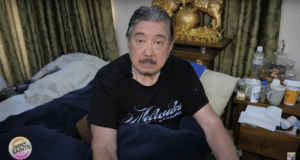There’s a saying that goes like this: “If you want to know what God thinks of money, look at the people He gave it to.” Likewise, in terms of environmental resources and natural beauty, God gave these bountifully to the Philippines—the Pearl of the Orient, “region of the sun caressed,” the gateway to Asia. What He thinks about us, though, is what we are defining now. And this day and age are appropriate for us to do so.
In the course of history, ours was a land trivialized in importance by colonizers. Now, our foreign policies are changing and realigning. The new administration has set a firm tone and new direction, ostensibly in safeguarding national interest. Until recently, the general public wasn’t too concerned with foreign policies. But with the shifting military and economic strategies in the international landscape, what can the average Juan make out of it? What we ought to know is this: We cannot overemphasize the importance of our country.
This was not the case in centuries past, however. During the Spanish period, the Philippines was seen by our colonizers as a mere group of islands at the far ends of the earth. Miguel Lopez de Legazpi wrote to King Philip II: “Cinnamon is the only article in the land from which we can derive profit.”
So there wasn’t much revenue from the archipelago, not due to lack of resources, but to the Spaniards’ disinterest in developing the country. That the Philippines was initially under the viceroy of Mexico was perhaps telling of our lesser degree of importance compared to Latin America. The Council of the Indies in Madrid even suggested to Philip II that he give up the Philippines in favor of Brazil. Filipino historian Horacio de la Costa wrote that the Philippines was nothing more to the Spaniards than “a kind of floating dock upon which to transship bales of China silk from junk to galleon.”
As Spain struggled to keep its empire afloat, the United States saw an opportunity to join a clique of imperialist countries like Great Britain and France. This dream sparked in the Philippines. What was once deemed an unprofitable archipelago became a promising springboard of development. As a country built by corporations, neocolonial America wanted to keep profits flowing by annexing the Philippines to it. Of course, it was not purely business. The United States had its humanistic objectives: to educate, to improve, and to help. But of utmost importance is its other goal: to rule. Our country was deemed unable to rule itself.
But surely the Philippines is no longer a desolate land, unable to govern itself. And no, it is not just cinnamon that makes us profitable.
In today’s Philippines, there is an apparent eagerness toward establishing an independent foreign policy. The grip of the United States over us is being relaxed, and the Philippines is not alone in this sentiment. Our neighbors, Malaysia and Thailand, are exhibiting similar fissures in their respective relationships with the West. In the recently held Apec Economic Leaders’ Meeting in Peru, President Duterte’s meeting with Russia’s Vladimir Putin and China’s Xin Jinping firmed up the possibilities of closer ties with China and Russia.
Because young people are not experts in the dynamic and complicated terrain of international politics, we should educate ourselves on how these relationships will be affecting our country and its people. The Philippines is hardly in the far corners of the world anymore. It’s said that if the United States sneezes, the whole world catches a cold. The Pearl of the Orient, naturally blessed in resources, in a strategically important location, should come into its own in the world.
And it is our duty as Filipinos to understand our country’s importance and make it part of our collective stance and sentiment. It makes sense, doesn’t it? Whether in personal matters or national affairs, if we know our importance—our intrinsic value and our depth—then we should not expect anything less. Not from anyone else, even from our very own selves.
michael.baylosis@gmail.com


